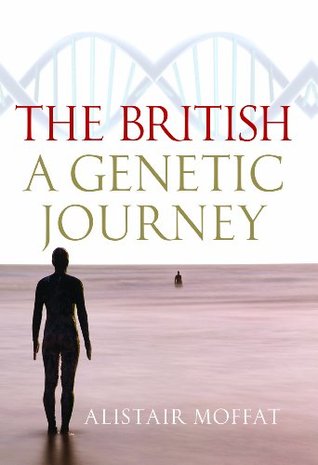 The British: A Genetic Journey, by Alistair Moffat
The British: A Genetic Journey, by Alistair Moffat
I generally enjoy Alistair Moffat’s non-fiction writing (I don’t know if he’s written any fiction), although I don’t agree with his outlook on the Arthurian legends (which he even manages to slot in here). It’s very much popular science, or that’s how it feels with the inserted text boxes of “interesting facts”, but the level isn’t really “complete beginner”. I mean, it talks about mapping population movements via comparing particular unique markers, which must mean single nucleotide polymorphisms (SNPs), but it doesn’t really contextualise that much. To me, my classes in genetics and anthropology contemplated this really well. It also talks about mitochondrial DNA and things like that, again without much explanation.
It starts off being general, rather than really a genetic history of the British, because of course, it goes back to the last common ancestors of mankind. It narrows down later on, looking at the various different inflows of new DNA, e.g. to what extent the Romans or the Normans mixed with the people already in Britain. What I was more interested in was the discussion of how Britain’s population got there. I didn’t know, for example, about the land that joined Britain to mainland Europe at one time, Doggerland, so all of that was new to me.
All in all, it didn’t give me many surprises, but it’s pretty up to date (includes stuff about recentish finds like the Denisovans) and, for the British population, pretty comprehensive. I’d have liked a little more about the separate populations of Britain: there are genetic differences, generally, between Scottish, Irish, Welsh and English people, and I’d have been interested to know more about how those groups formed and remained intact.

Leave a Reply